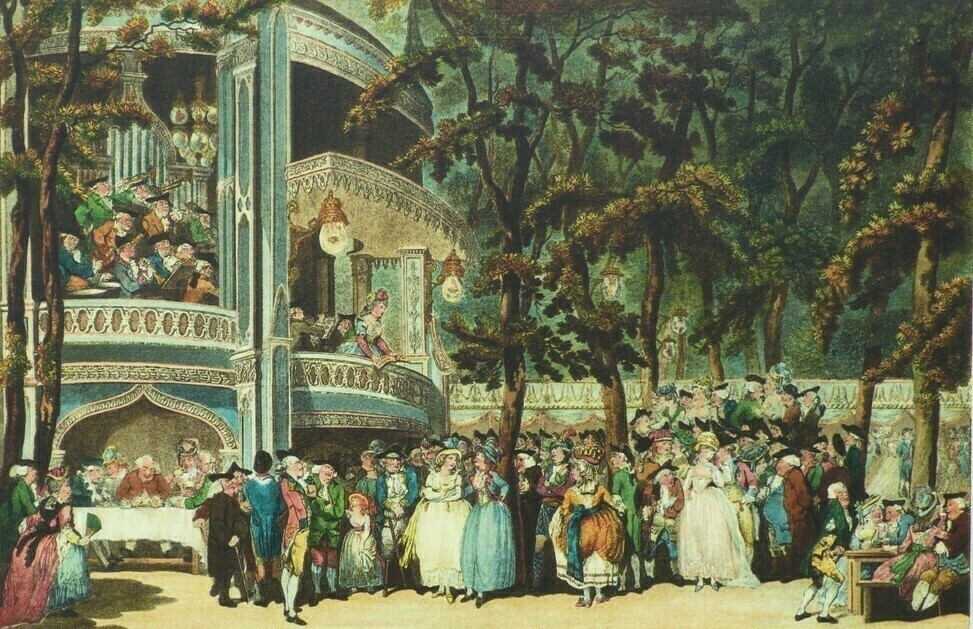Historical Context
∞

Pleasure Garden

Vauxhall Gardens by Rowlandson (1785)
A singer and orchestra (with organ) are performing from the balcony.
A Pleasure Garden is a park or garden designed for public recreation and entertainment.
Think of the Vauxhall Gardens in London.
∞

18th-Century Musicians Saw Themselves as Craftworkers

18th-century metalworkers
The past is a foreign country, they do things differently there.
— L.P. Hartley: The Go-Between (1953)
In the 18th-century people thought differently about music (and the arts) compared to the 19th and later centuries. Neither way is better or more correct than the other, but a deeper appreciation of 18th-century music can come with an understanding of the motivations and ideals of 18th-century musicians.
Musicians (and other artists) saw themselves as craftworkers. Even Bach.